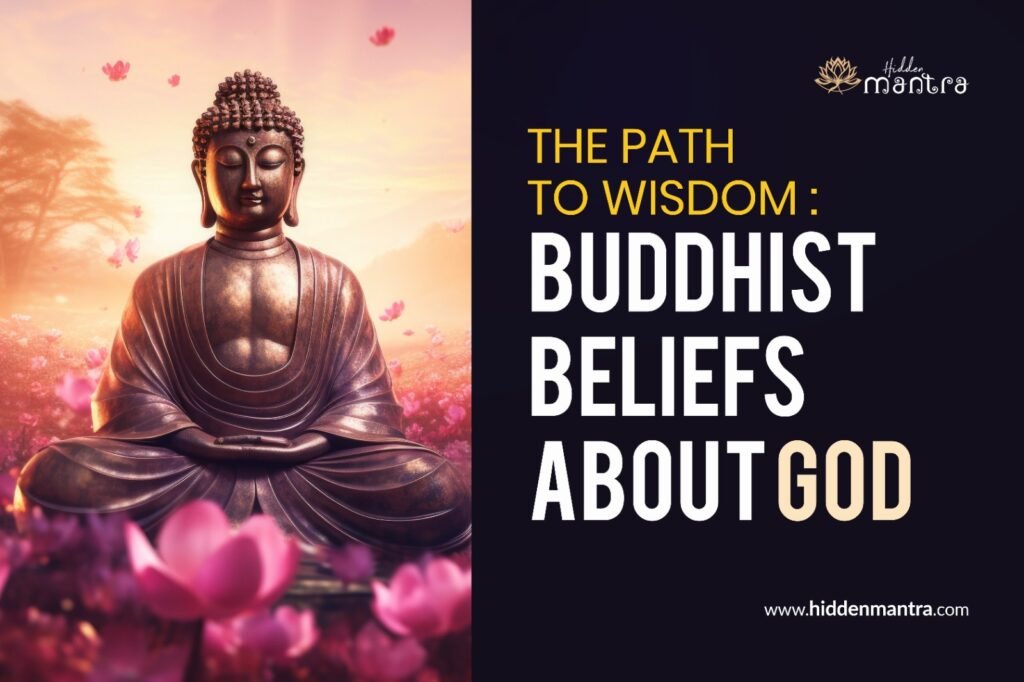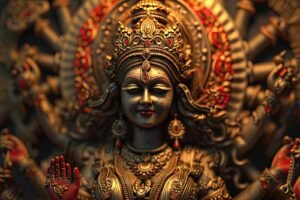The concept of God is a complex one. In our world, there are different interpretations of God in different religions. There are Monotheistic religions, which consider God as the supreme authority, like Christianity, Islam, etc. Polytheistic religions, on the other hand, believe in more than one God, like Japanese Shinto, Taoism, and Chinese folk religions. Hinduism also believes in many gods but is not polytheistic.
Originated 2500 years ago, Buddhism is one of the largest religions in the world. According to Buddhists, they do not believe in any God. In this blog, we will deal with the Buddhist Beliefs about God. Let’s dive in.
Buddhism: A Non-Theistic Philosophy
First of all, we have to understand the fact that Buddhism is a non-theistic philosophy. So the next question will be, what is non-theistic philosophy?
Non-theistic philosophy involves a range of religious and non-religious attitudes. Buddhism doesn’t include belief in the existence of gods. Some of you will think Buddhist Beliefs about God is similar to atheism, but no, in atheism, there is an active disbelief in any gods. Buddhism, on the other hand, is like having silence towards the concept of God.
Buddhism has a complex attitude towards God. It doesn’t argue that God doesn’t exist; instead, it is driven by the philosophy that if one is searching to attain enlightenment, then the Buddhist Beliefs about God is entirely irrelevant.
Buddhism does not believe in God because it is a non-theistic philosophy. So, there is no God in Buddhism who is a creator or judge.
The idea of God in Buddhism is crucial because, according to Buddhism, the Universe is not created by God. The Universe already exists and is consistently evolving and devolving due to some conditions. There is no first mover or settlement, as we can see in the concepts of other religions.
In Buddhism, we are the ultimate decision-makers in our lives. The concept of Karma reinforces this philosophy. We determine our fate. If you do good, then good things will come back to you; if you do negative things, you will reap the negative sow.
The Buddha – A Teacher, not a God
Buddhism originated in the fifth century BCE in the Indian Subcontinent. It is based on the teachings of Siddhartha Gautama, the founder and the primary figure in Buddhism. He was born into a royal family in Lumbini around 563 BCE and led a privileged life.
When he reached 29, he had an epiphany that all this wealth and privilege would not result in happiness. So, he started his journey to find the ultimate happiness. To do this, he explored various religions and philosophies around the globe. He underwent six years of meditation and study. As a result, he discovered ‘The Middle Path’ and attained enlightenment.
Then he spent the rest of his life teaching the principles of Buddhism, or Truth, until he passed away at the age of 80. The word Buddha comes from the root word budh, which means “to know or “awaken.” Even though “he is the founder of Buddhism, he is not claiming himself as the God or a deity.
He attained enlightenment and stayed to teach people how to achieve the path of enlightenment. In this way, we can understand that Buddha never encouraged the concept of God. Instead, he shared all the information to eliminate suffering in life through his teachings. He is a teacher not a god.
Dependent Origination: A World Without a Creator
Have you ever wondered why humans suffer? The core of Buddhist Beliefs about God is understanding suffering and removing it from our lives. The answer is Dependent origination (Skt: pratityasamutpada, Pali: paticca-samuppada).
In Buddhism, everything that exists is conditioned. Everything in this Universe is dependent. This principle applies not just to our thoughts but to objects, individuals, and the Universe as a whole.
This is the concept dependent origination dealing in Buddhism. It involves the cycle of birth, death, and rebirth. There are twelve links in the chain, each one connecting to the other. These links are the reasons that led us to suffer. Buddhist Beliefs about God helps us to escape from this never-ending cycle of suffering.
Let’s have a look at the twelve links:
- Ignorance: Ignorance is the lack of understanding or misconception about true nature.
- Mental formations: It mainly refers to the actions or impulses that ultimately lead us to Karma.
- Consciousness: It is the awareness that arises upon the mental formations.
- Name and form: It refers to naming objects, including psychological and physical parts.
- The senses- sight, hearing, smell, touch, taste, and mind: The sixth senses that connect us to the world.
- Contact: it is the interaction between senses, sensory objects, and consciousness.
- Feeling: The emotional response that results from contact with sensory objects.
- Craving: The intense desire for pleasures and a strong dislike for the unpleasant one.
- Clinging: The attachment to the desires.
- Becoming: It is the process of becoming. One’s actions or Karma shape this.
- Birth: It is the manifestation of a new being.
- Aging and death: The inevitable part of human life is aging and, ultimately, death.
Dependent origination is all about interconnection. Everything we do is connected. There is no single existence and human life is a series of connections.
The Focus on Enlightenment : Buddhist Beliefs about God
The ultimate aim of Buddhism is to attain Nirvana, otherwise known as enlightenment. When someone attains enlightenment, there is no space for suffering. It eliminates one from attachments and desires that lead to suffering. It also results in achieving wisdom and peace. Nirvana is only the result of removing hatred, greed, and all negative emotions.
According to Buddhism, human life is a cycle of suffering and rebirth. Achieving Nirvana is the possible way to escape from this cycle. The founder of Buddhism, Gautama Buddha, first attained the stage of Nirvana. Followers of Buddha do not believe in any god or deity. They believe that no supernatural figures can lead to the path of enlightenment.
Buddhist Beliefs about God is very complicated so it is not a theistic religion. Its prime focus is that everything in the Universe depends on everything else. Former events make present events happen, and they cause future events. It’s like a never-ending cycle of events.
Conclusion
If anyone wants enlightenment, then the concept of God is irrelevant to them. Buddhist philosophers always encouraged the fact that having faith in an eternal god only leads someone to distract themselves from attaining enlightenment. In this way Buddhist beliefs about God always question the concept of God in a religion.
Buddhism always demands that its followers should focus on self-improvement. By cultivating mindfulness, one can bring positive upliftment to the self. One has to be free from emotions and attachments and observe their thoughts to get a better understanding. One can improve by understanding the cause of suffering through four noble truths and eliminating it by following the noble eight paths. Attain enlightenment by changing how you see and react to the world. Visit our Hidden Mantra website to gain more such insights.









